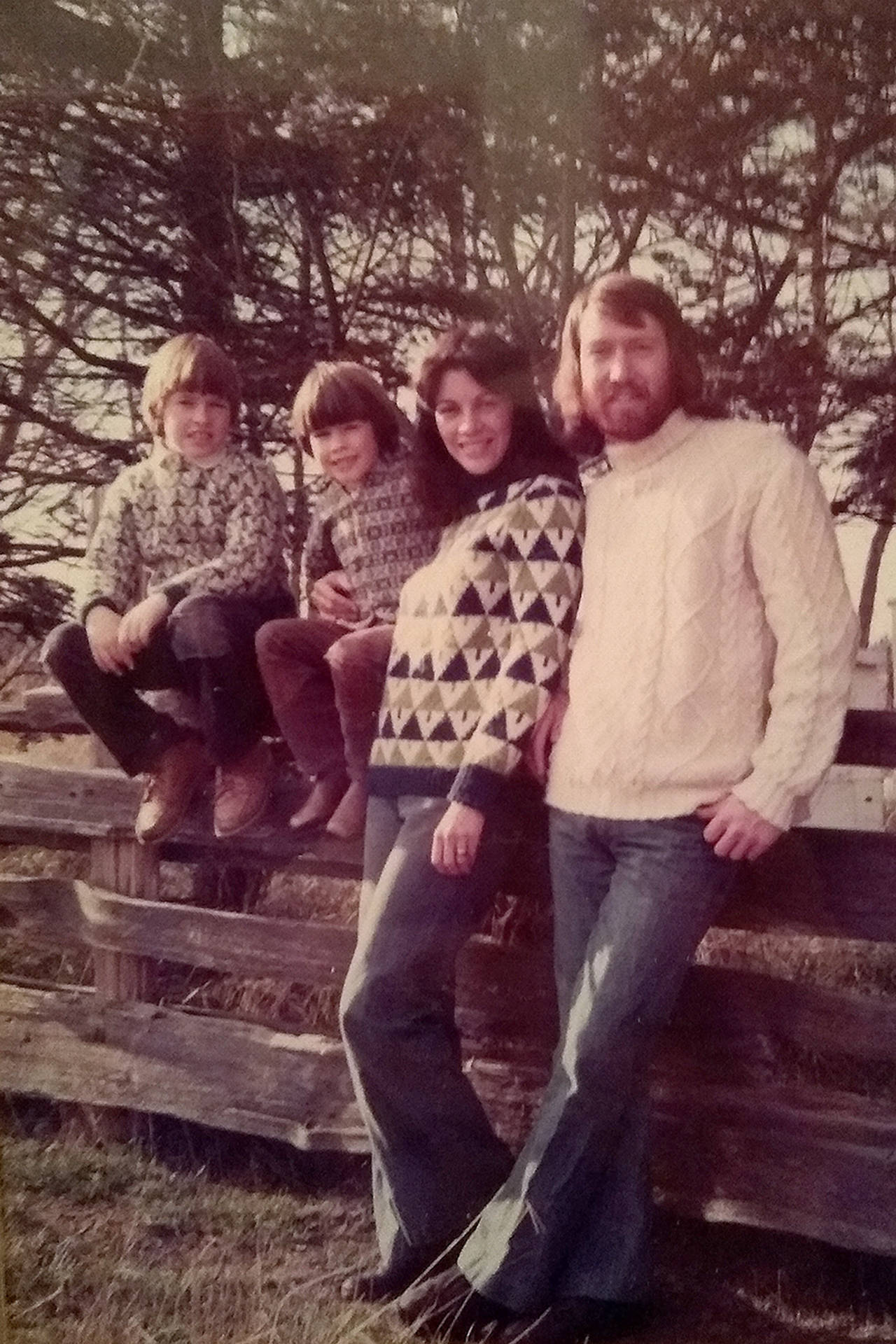Tom Cowan’s resumé reads like an alphabet soup of organizations, all sharing one trait: the aim of restoring and protecting the Salish Sea, and the lives of those who call it home. But so understated is Tom, his most braggable achievement only pops up at the end of the interview.
Raised in the Seattle area, Tom was introduced to Lopez in high school by a friend. So when he and his wife Tammy decided to move “back to the land” from Seattle with their two little boys in 1974, they “didn’t look anywhere else.” The elder generations quickly followed: Tom’s parents and both grandmothers became Lopezians too.
With the boys in school, Tom and Tammy faced the back-to-the-landers’ steep learning curve. The first year was hard, living without plumbing, cooking outdoors. Then there was the work itself. “We raised cattle, sheep, pigs, chickens and had a huge garden,” Tom says, “but when your youngest son needs glasses, you gotta get a job!” After various gigs, Tom started Lopez Island Electric with Tim Stidham. Tammy worked at The Galley, then joined her mother-in-law running a fabric store. Keeping the family afloat remained a struggle. “Money was a big issue,” Tom relates, but like many islanders, the Cowans relied on barter to get by. Both sons, fully Lopezian, delved into 4-H.
With the family launched, Tom felt the call to service. In the early 1970s, the state required counties to create a Shoreline Master Program, and Tom volunteered to help plan. “One thing led to another; I just got very involved in land protection,” he says. So in 1982, with no experience but plenty of concern, he ran as the anti-development candidate for county commissioner—and won. He served 12 years, cutting his political teeth as the islands faced their first waves of growth.
As their sons left for college, Tom and Tammy dealt with the pangs of empty-nesting by further involvement. Tom says, “The predominant theme of my tenure was to try to protect our way of life by controlling growth.” A new opportunity came in the late ‘80s from Peter Fisher, a “visionary” from Orcas, who introduced the East Coast idea of a land bank. Tom had been invited to speak at an international conference on islands, held on Martha’s Vineyard, which had a land bank. After studying it, Tom came home a believer.
The next challenge was to change Washington’s legislation to make land banks legal. Tom paid his dues in Olympia and helped win that right. Then the land-bankers got the issue on the ballot where, thanks to what Tom calls “forward-thinking realtors” and the art of compromise, it passed. Today, San Juan remains Washington’s only county with a land bank.
Tammy found her own form of community work, through business. She had been working at Sunset Building Supply, and in 1992, she bought the store and ran it for the next 14 years, even investing in a generator to meet islanders’ needs during power outages. “I loved the hardware business!” Tammy declares. “But there were no wonderful novels next to my bed; there were plumbing books, building books—I had to learn a lot.”
Meanwhile, Tom left the county commission in 1995, but his political urges stuck. “I really wanted to see how laws are made,” he says. So he joined the Puget Sound Water Quality Authority (PSWQA), commuting by plane and car to Olympia, where he lived part-time on his sailboat. But after four years, Tom missed Lopez. So he became executive director for the Northwest Straits Commission (NWSC), headquartered in Padilla Bay. One of his proudest accomplishments there was starting a program which has removed almost 6,000 lost or abandoned gillnets, saving millions of lives of marine creatures. “In fact,” Tom adds casually, “we were so successful I was invited to speak to the United Nations about it, in 2006.”
Speaking in front of 88 nations, all the way from Lopez? “It was a once-in-a-lifetime experience,” he acknowledges. “You go, ‘Oh my goodness,’ realizing they’re translating your speech to all their ambassadors.” He worked for the NWSC for eight years, but, upon stepping down, Tom simply moved to consulting on the same coastal issues for the next decade.
In the same year, despite her love for the business, Tammy sold Sunset, acknowledging that working seven days a week was keeping her from the grandchildren. The Cowans are nominally retired now—nominally. Tom still serves as a volunteer Commissioner of the NWSC—appointed by the governor—and as board member for the San Juan Preservation Trust, and the new Lopez Island Community Scholarship Foundation, about which he is especially enthusiastic. LICSF awarded its first scholarships this past year: $5,000 each to three Lopez graduates, with advocates appointed to help them navigate their futures.
So is Tom Cowan retired? Hardly. Not even, by the looks of him, tired.



